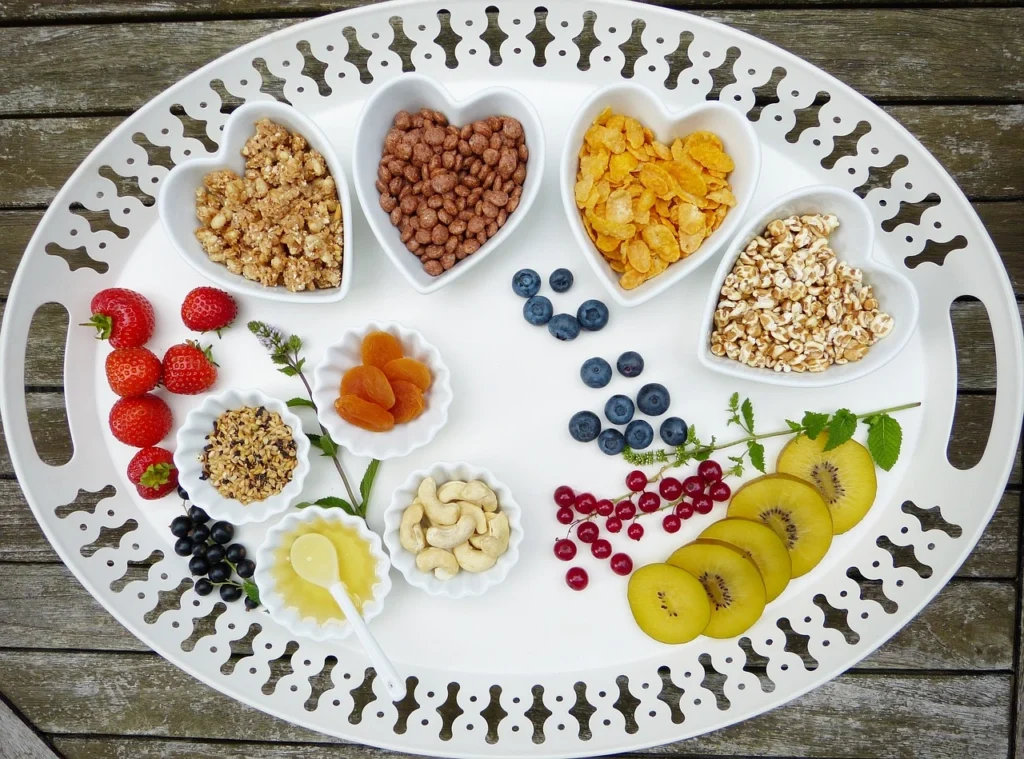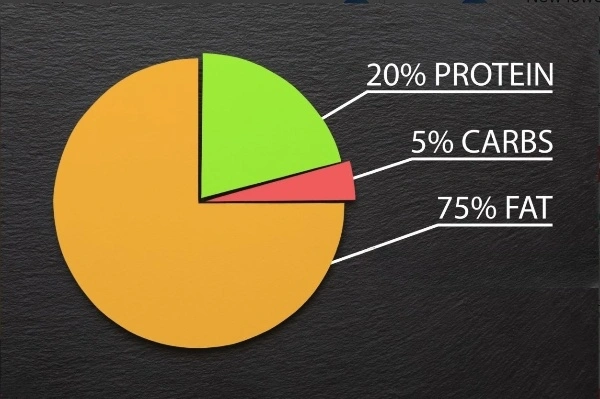Embarking on a how to lose weight journey can feel overwhelming, but with the right strategies, it can be a manageable and rewarding experience. The key is to focus on sustainable lifestyle changes rather than quick fixes. This article will provide practical tips, backed by scientific research, to help you lose weight naturally and permanently.

1. Focus on Whole Foods, Not Calories
What the science says: Instead of obsessing over calorie counting, focus on the quality of your food. A study published in The American Journal of Clinical Nutrition found that individuals who followed a diet rich in whole foods (think fruits, vegetables, lean proteins, and healthy fats) had more success with weight management than those who simply tracked calories.
Why it works: Whole foods are nutrient-dense and keep you fuller for longer, preventing overeating. For example, 100 calories from a candy bar won’t fill you up like 100 calories from a handful of almonds or a bowl of vegetables would.
Actionable step: Start by swapping out processed snacks for whole food alternatives. Next time you’re hungry, grab an apple or a handful of nuts instead of reaching for chips or a candy bar.
2. Incorporate Regular Movement into Your Day
What the science says: You don’t need a gym membership to see results. Research from the Mayo Clinic shows that non-exercise activity thermogenesis (NEAT)—which includes all the little movements you do in daily life, like walking, cleaning, or even fidgeting—can help burn more calories throughout the day.
Why it works: Small movements add up. If you sit for long periods, your metabolism slows down. However, staying active by walking, stretching, or doing household chores helps keep your body in fat-burning mode.
Actionable step: Set a timer to remind yourself to stand up and move every hour. Even a 5-minute stretch or walk around the block can make a difference.

3. Prioritize Sleep and Manage Stress
What the science says: Research from Harvard Medical School highlights the connection between sleep deprivation, stress, and weight gain. Poor sleep affects the hormones that control hunger and cravings, while chronic stress leads to increased cortisol levels, promoting fat storage, especially around the abdomen.
Why it works: When you’re well-rested and manage stress effectively, your body can better regulate hunger and cravings, making it easier to stick to healthy eating habits.
Actionable step: Aim for 7-9 hours of sleep per night and practice stress-reducing activities such as deep breathing, meditation, or yoga.
4. Hydrate, Hydrate, Hydrate
What the science says: A study from the Journal of Clinical Endocrinology & Metabolism found that drinking water can boost your metabolism by 24-30% for up to 90 minutes after consumption. Staying hydrated also helps prevent mistaking thirst for hunger, which can lead to overeating.
Why it works: When you’re well-hydrated, your body functions optimally, which aids digestion, boosts energy, and can even suppress appetite.
Actionable step: Start your day by drinking a glass of water and aim to consume at least 8 glasses throughout the day. Carry a reusable water bottle with you to make it easier.

5. Eat Protein at Every Meal
What the science says: Protein not only keeps you fuller for longer, but it also has a high thermic effect, meaning your body burns more calories digesting it compared to fats and carbs. According to a study in the American Journal of Clinical Nutrition, high-protein diets help with both fat loss and preserving lean muscle mass during weight loss.
Why it works: Protein-rich meals stabilize blood sugar levels and reduce hunger hormones, which in turn curbs cravings.
Actionable step: Include a source of protein in every meal. This could be eggs for breakfast, chicken or beans for lunch, and fish or tofu for dinner.
6. Track Your Progress, but Don’t Obsess Over the Scale
What the science says: Monitoring your habits can help keep you accountable. However, the scale isn’t always the best reflection of progress. A study in Obesity Journal noted that focusing on other metrics like measurements, how clothes fit, and energy levels leads to better long-term success.
Why it works: The scale can fluctuate for many reasons unrelated to fat loss, like water retention. By tracking habits such as food intake, workouts, and sleep, you can see consistent improvements in your lifestyle, even if the number on the scale moves slower than you’d like.
Actionable step: Keep a simple journal to log your meals, workouts, and how you feel. Notice patterns, but avoid obsessing over daily fluctuations in weight.

7. Adopt the 80/20 Rule for Healthy Eating
What the science says: Perfection isn’t necessary for success. The Journal of Nutrition and Metabolism supports the 80/20 rule: 80% of the time, focus on nutritious, whole foods, and 20% of the time, allow yourself some indulgence.
Why it works: The 80/20 rule helps you avoid feelings of deprivation, making it easier to stick to a healthy eating pattern in the long run. This balance is key to long-term success.
Actionable step: Plan your meals ahead to ensure that 80% of your diet consists of healthy options. Enjoy your favorite treats occasionally, but practice moderation.
The Importance of Macronutrients and Micronutrients for Weight Loss
Losing weight isn’t just about cutting calories; it’s about ensuring your body receives the right balance of macronutrients (proteins, carbohydrates, and fats) and micronutrients (vitamins and minerals) to function optimally. A well-balanced diet helps promote fat loss while maintaining lean muscle mass and ensuring your body’s metabolic processes run smoothly.
Let’s dive into how each of these nutrients contributes to weight loss, and what foods or habits to avoid on this journey.
Macronutrients and Their Role in Weight Loss

1. Protein: The Muscle Preserver
Why it’s essential: Protein plays a vital role in building and repairing tissues, producing enzymes, and supporting immune function. When losing weight, protein becomes even more important as it helps preserve lean muscle mass. Lean muscle boosts metabolism, leading to more calories burned even at rest.
Scientific insight: A study published in The American Journal of Clinical Nutrition revealed that high-protein diets enhance fat loss while preserving muscle mass, especially during calorie restriction. Protein also has the highest thermic effect of food (TEF), meaning your body uses more energy to digest and metabolize it compared to carbs and fats.
Daily intake: Aim for 1.2 to 1.6 grams of protein per kilogram of body weight per day for effective weight loss. This can vary depending on your activity level and overall goals.
Best sources: Lean meats (chicken, turkey), fish, eggs, tofu, legumes, and dairy products like Greek yogurt or cottage cheese.
What to avoid: Over-reliance on processed protein foods (like protein bars with high sugar content) can be counterproductive. Choose whole food sources instead.
2. Carbohydrates: Fuel for Energy
Why it’s essential: Carbohydrates are the body’s primary energy source. While many low-carb diets promote weight loss by restricting carbs, it’s important to understand that not all carbs are created equal. Your body needs carbohydrates, particularly complex carbs, for sustained energy, mental focus, and to avoid muscle breakdown.
Scientific insight: Studies, including one published in the Journal of Nutrition, have shown that diets rich in whole grains, vegetables, and legumes are linked to better weight management due to their fiber content, which promotes fullness and improves digestion.
Daily intake: Depending on your body type and activity level, aim for carbs to make up 40-50% of your total caloric intake. Focus on complex carbohydrates.
Best sources: Whole grains (quinoa, brown rice, oats), vegetables (sweet potatoes, leafy greens), legumes (lentils, chickpeas), and fruits.
What to avoid: Refined carbs like white bread, pastries, and sugary cereals should be limited, as they cause insulin spikes and lead to overeating. They’re quickly digested, leaving you feeling hungry sooner and causing energy crashes.
3. Fats: The Essential Nutrient
Why it’s essential: Fats are crucial for brain health, hormone production, and absorbing fat-soluble vitamins (A, D, E, and K). While fats are calorie-dense, they promote satiety and can help reduce overall caloric intake when included in balanced amounts.
Scientific insight: According to research published in the British Journal of Nutrition, diets that include healthy fats, particularly unsaturated fats, are associated with greater weight loss compared to low-fat diets. This is because fats help regulate hunger hormones and prevent overeating.
Daily intake: Aim for 20-35% of your total caloric intake to come from fats, focusing on unsaturated fats.
Best sources: Avocados, nuts, seeds, olive oil, and fatty fish (like salmon and mackerel).
What to avoid: Trans fats (found in fried foods, packaged snacks, and baked goods) and excessive saturated fats (from processed meats, butter, and high-fat dairy products) should be minimized, as they can lead to weight gain and increase the risk of heart disease.
Micronutrients: The Silent Supporters of Weight Loss

While macronutrients are the building blocks of your diet, micronutrients—vitamins and minerals—are equally important. Deficiencies in certain micronutrients can hinder weight loss and impact your overall health.
1. Calcium and Vitamin D: Bone Health and Metabolism
Why they’re essential: Calcium supports bone health, while vitamin D helps the body absorb calcium and plays a role in fat metabolism. Deficiencies in either can lead to metabolic slowdown and difficulty losing weight.
Scientific insight: A study in the American Journal of Clinical Nutrition found that calcium and vitamin D supplementation can assist in fat loss by improving the body’s ability to burn fat more efficiently.
Best sources: Dairy products, fortified plant-based milks, leafy greens, and fatty fish (for vitamin D).
What to avoid: Lack of sunlight exposure (the body produces vitamin D when exposed to the sun) and reliance on sugary calcium supplements can both reduce effectiveness.
2. Magnesium: The Stress and Sleep Regulator
Why it’s essential: Magnesium plays a key role in regulating stress hormones, supporting quality sleep, and controlling blood sugar levels. Poor sleep and high stress are often linked to weight gain.
Scientific insight: Research published in the Journal of the American College of Nutrition demonstrated that adequate magnesium intake is associated with better sleep quality and reduced levels of cortisol, a stress hormone linked to abdominal fat.
Best sources: Nuts, seeds, whole grains, and leafy greens.
What to avoid: Excessive caffeine and sugar can deplete magnesium levels and contribute to stress-related overeating.
3. B Vitamins: Energy Boosters
Why they’re essential: B vitamins (especially B12, B6, and folate) are vital for energy production and metabolism. They help convert the food you eat into usable energy, ensuring that your workouts and daily activities are powered efficiently.
Scientific insight: A study published in Nutrition and Metabolism highlights that individuals with deficiencies in B vitamins are more prone to fatigue, making them less likely to stay active and burn calories.
Best sources: Whole grains, eggs, legumes, and leafy vegetables.
What to avoid: Excess alcohol and a diet lacking in diverse food groups can deplete B vitamin levels.
What to Avoid During the Weight Loss Journey
- Highly Processed Foods: These foods are usually low in nutrients and high in sugar, unhealthy fats, and sodium. Avoid snacks like chips, soda, frozen meals, and fast food. They often lead to overeating and can cause insulin resistance, which hinders weight loss.
- Sugary Beverages: Drinks like soda, sweetened tea, and energy drinks are loaded with sugar and provide empty calories. A study in The BMJ found that sugary drinks are a major contributor to weight gain and should be avoided for effective weight loss.
- Artificial Sweeteners: While they may seem like a good substitute, artificial sweeteners can increase cravings for sweets and disrupt your body’s natural satiety signals, making it harder to control food intake.
- Extreme Caloric Deficits: While it may be tempting to cut calories drastically, doing so can slow down your metabolism and lead to muscle loss. A study published in the International Journal of Obesity found that crash diets often result in a “yo-yo” effect, where weight is regained after the diet ends.
- Skipping Meals: Skipping meals can cause blood sugar fluctuations, leading to energy crashes and overeating later in the day. A study from Appetite Journal showed that individuals who regularly skip meals are more likely to consume excess calories at subsequent meals.
To achieve lasting weight loss, focus on balanced macronutrients and micronutrients. Prioritize whole, unprocessed foods with proteins, healthy fats, complex carbs, and essential vitamins. Avoid highly processed foods, sugary drinks, and extreme diets.
The key to fast, natural, and permanent weight loss is gradual lifestyle changes. Crash diets aren’t sustainable, but nourishing your body, staying active, and caring for your well-being naturally leads to healthy weight loss.


